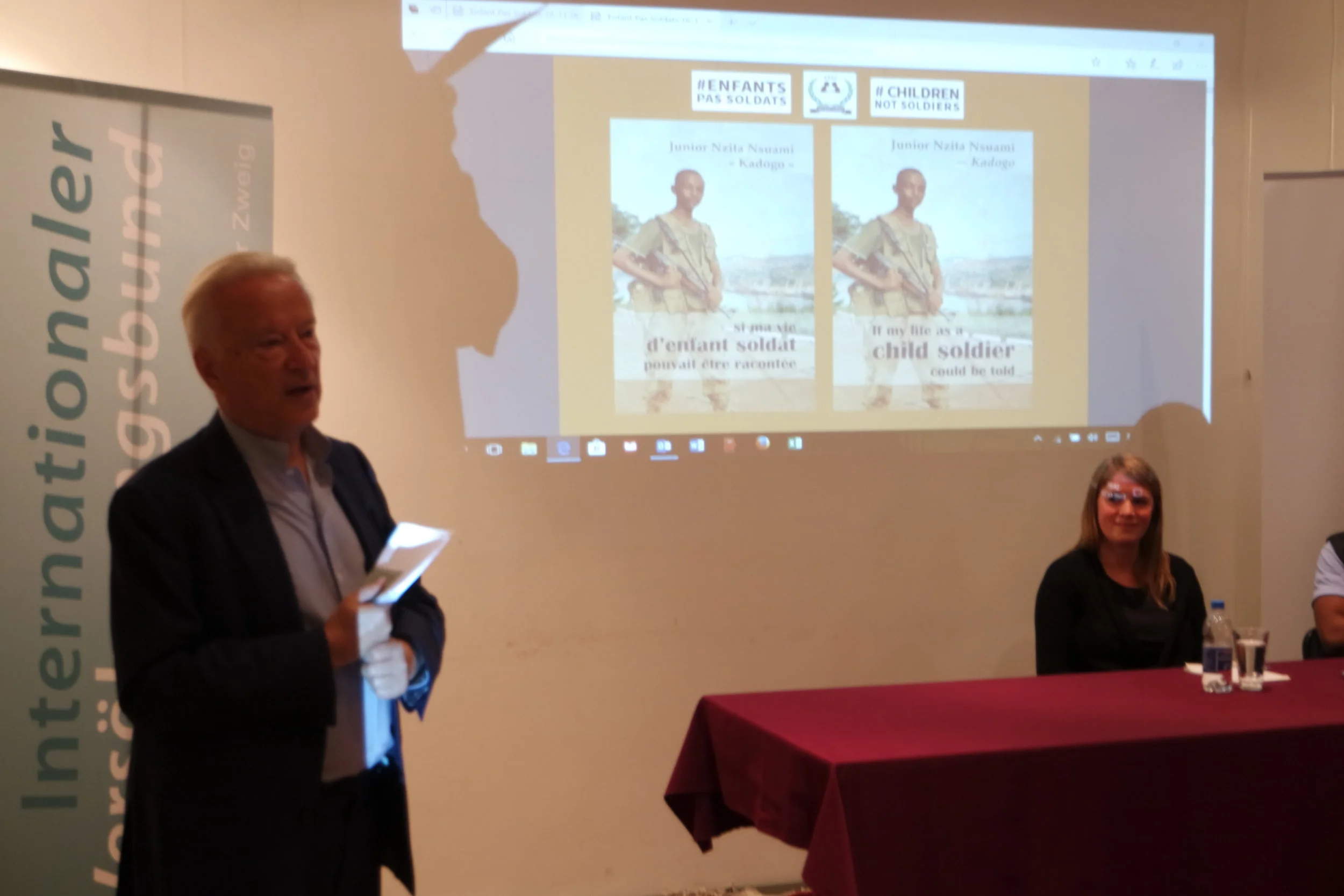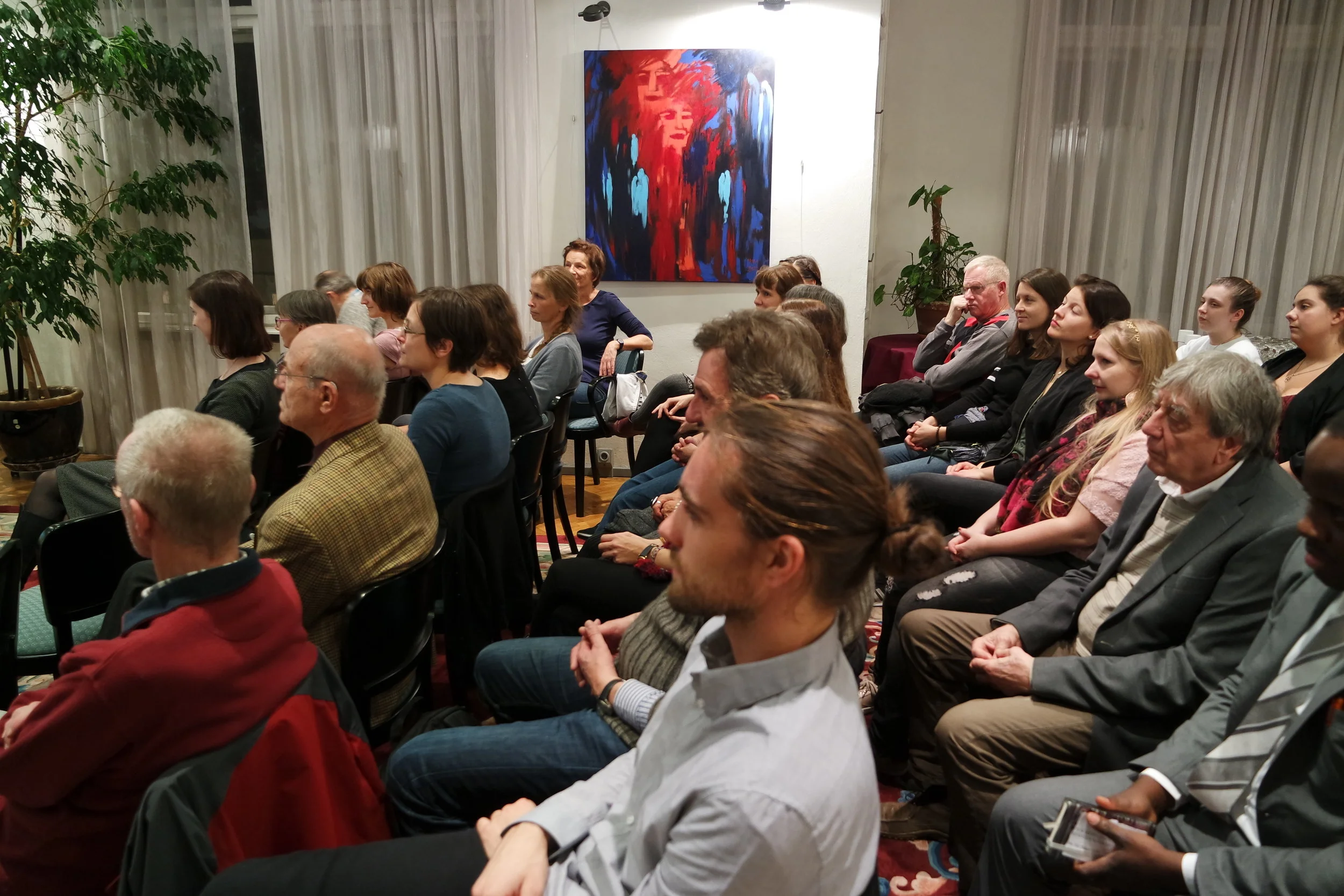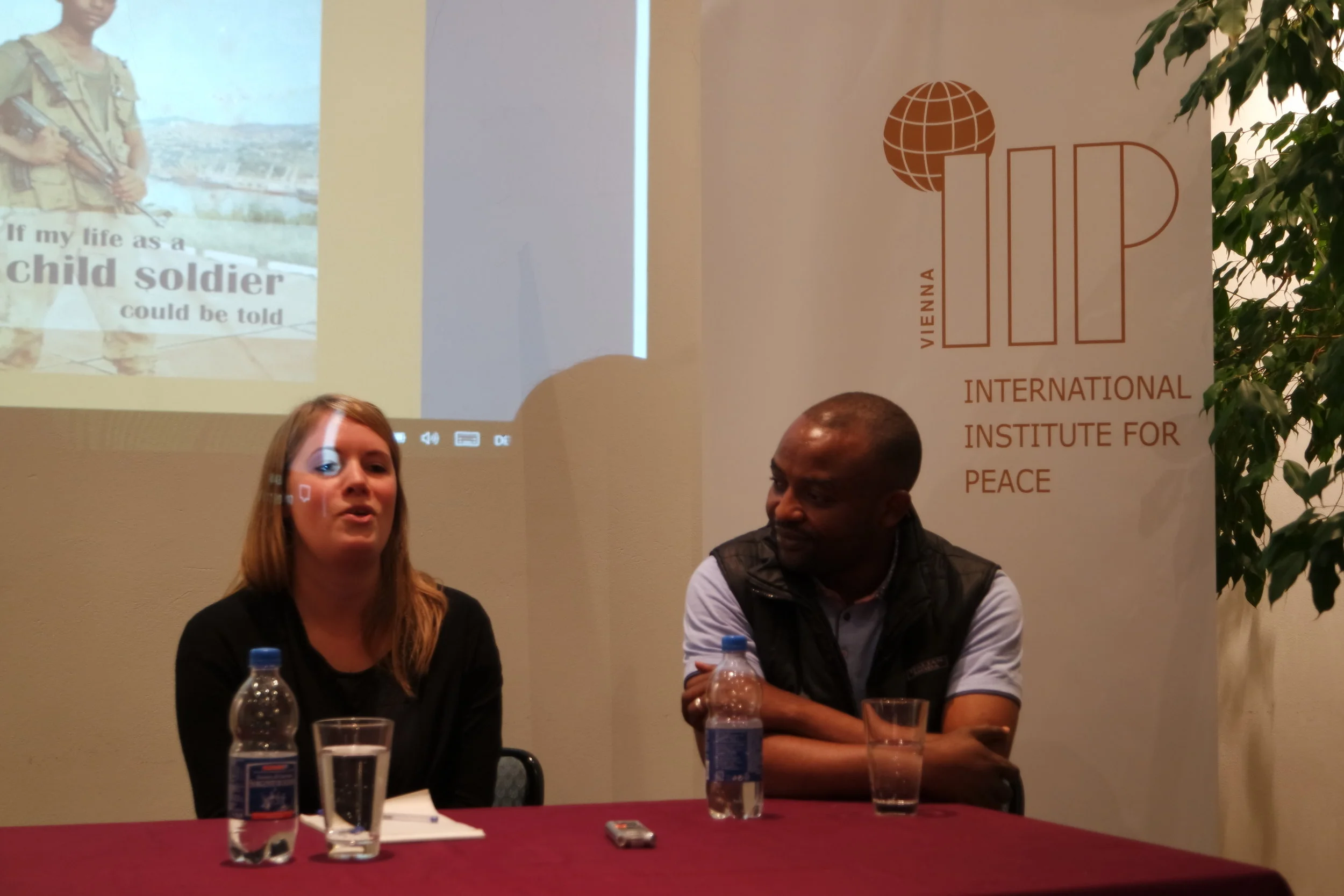With an estimated number of 250.000 children, the issue of child soldier recruitment continues to be a problem of high importance. Junior Nzita used to be one of those children fighting and killing with weapons for purposes they never knew. Fortunately he managed to escape the children’s army in DRC and is now running an NGO, which is trying to give perspectives to children other than serving to the weapon. In his position as a UN ambassador he tries bringing together the international community for ostracizing child soldier recruitment.
On 7th November 2017 Junior Nzita was cordially invited to give an introduction to his book ‘If My Life As A Child Soldier Could Be Told’ and an insight on how he was able to escape this life at the International Institute for Peace, Vienna.
As many people in Europe would think the issue of child soldiers in Central Africa doesn’t affect much of their lives or vice versa. In the beginning of his speech Nzita therefore asked the audience to raise their hands, whether they are having a smartphone in their pockets. All the people who had, he said, do also have the Congo and its conflicts in it. However, the DRC is one of the richest countries when it comes to rare minerals, which we need to build our newest technologies with. As he mentions, this is already one of the reasons why there are still so many child soldiers in DRC. The country’s lack of functioning of democratic institutions makes it easy for transnational companies to make unfair businesses and deplete the natural resources. Because of the lack of democracy in the DRC, the second reason for recruiting child soldiers evolves. Power shifts are rarely seen Therefore rebellious and armed groups tend to violently fight against the established governments and elites. But most important, Nzita says, is that child soldiers won’t ask for a salary for what they are doing. Hence, the recruitment of child soldiers is a method for cost reduction in the war. Also children won’t ask questions about what they are doing. They will simply obey and do what they are trained for.
In 1996, when he was only twelve years old Junior Nzita left his family to attend a boarding school until one day the army came to shoot all the teachers and kidnap the children to put them into recruitment camps. Nzita says, this was the very day he lost his childhood. In contrast to ordinary military academies the children are manipulated and brainwashed with the usage of direct violence to make them ready to shoot and kill. The children are being told that it’s them who are the liberators. They run through spiritual exercises where they are being told they would be invulnerable to the enemy’s ammunition. Nzita himself fought in the Congo Wars with the goal to oust the former dictator Mobuto out of office. After six months of a brutal war they managed to take over the power in DRC, however, all the children were left alone traumatized with what they have done by killing all those people. In the aftermath of the war Nzita experienced torture and reports of traumatizing events where friends of him were being brutally murdered.
When he was 13 years old the war continued and he was once more called to fight with arms. He points out that the wars in Congo were greatly influenced by neighboring countries like Rwanda, Angola and Zimbabwe.
The most difficult moments as a child soldier he describes by seeing other children being brought to school by their parents and enjoy a relatively peaceful childhood. Junior made friends with some of these children and said he would accompany them going to school and wait in front of the building until they were finished, but later on being chased away by their parents. Nevertheless he got an invitation for a birthday party from one of his friends, where he had to attend in civil clothing, which left him in a dilemma, because if he would be seen without his uniform his military colleagues would have executed him as a renegade.
After making his friends and even falling in love with a girl, Junior Nzita once more was called to fight, but this time in Angola. He describes the situation in Angola as horrifying, because of the innumerable amount of land mines hidden in the country’s soil. Only 300 out of 1300 child soldiers made it home, Junior Nzita was among them.
Back home he asked his general why he was not allowed to attend school just like the general’s children. His question left the general somehow emotionally touched and he started supporting Junior to find a way out of the children’s army and he eventually took this chance.
Junior often asked himself how to deal with what he has done during war, the lack of understanding of what happened, with all the traumata, the anger and sadness. The only solution for him was to forgive the people who had forced him into the life of a child soldier and walk a peaceful way from now on.
He then decided to launch a program for the demobilization of child soldiers and his organization is now well known as ‘Paix pour L’enfance’. Enthusiastically he tells a story of a young girl in his rehabilitation center who asked him what she should do with the book his organization provided for her. It reminded him of his younger self, asking his military chef on what to do with the rifle he was given.
Since 2013 Junior Nzita is addressing the child soldier topic to the international community in his role as a voluntary UN ambassador. He mentions that especially the people of the so-called Western world consider children’s rights as inalienable and therefore should take responsibility for their actions e.g. the distribution of weapons into conflict zones. Keeping silent about these issues, in his opinion, is a huge part of the problem.
Junior Nzita is currently on a tour through Europe to promote his book ‘If I My Life As A Child Soldier Could Be Told’. All the earnings from the book will finance activities of his rehabilitation center in DRC and his travel costs.








